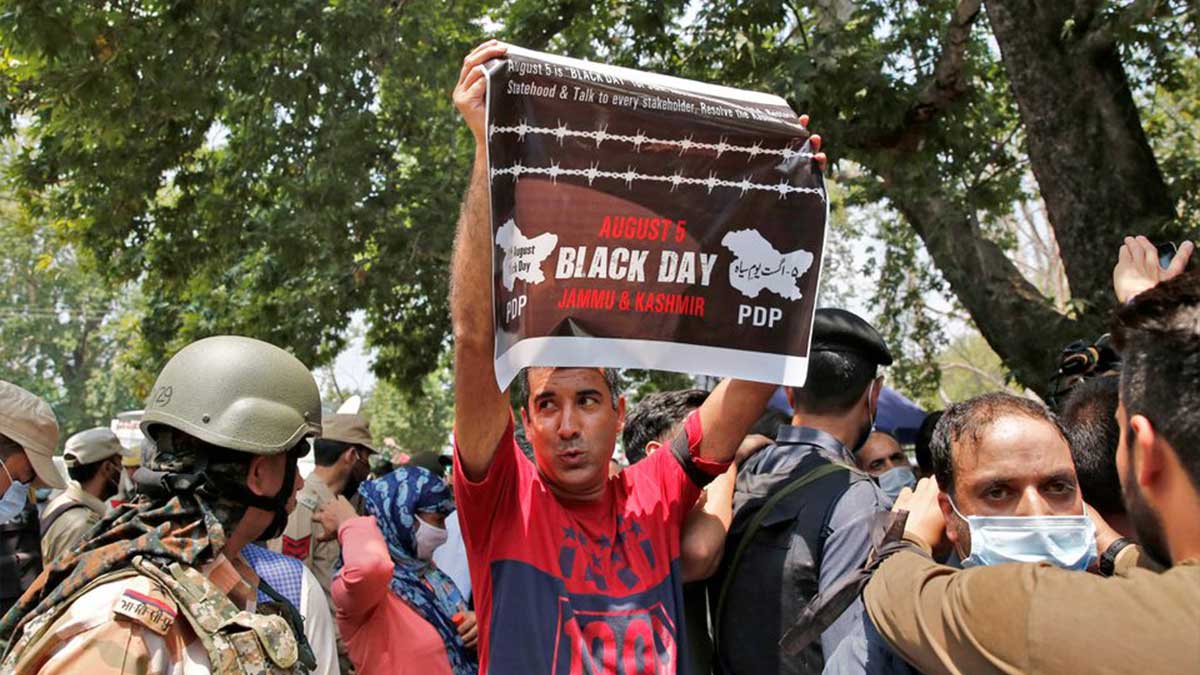On August 5, 2019, India’s ruling Bharatiya Janata Party (BJP) abolished Article 370 of the constitution, robbing occupied Kashmir of its special status. The move gave persons from the rest of India the right to buy property in occupied Kashmir and make permanent residence there.
The effort is seen as an effort by Kashmiris, foreign organisations, and critics of India’s Hindu nationalist-led government to dilute the demography of Muslim-majority Kashmir with Hindu settlers.
Pakistan has been speaking out against the move and Indian atrocities in the valley for the past two years.
Read more: ‘All unresolved issues, including Kashmir conflict, must be discussed between Pakistan, India’
Last year, the government named August 5 as Youm-i-Istehsal, or Kashmir’s Day, in occupied Kashmir to protest the Indian government’s decision to deprive the region of its autonomy.
Foreign Minister Shah Mahmood Qureshi wrote letters to the UN Security Council (UNSC) and the UN Secretary General on Wednesday, bringing their attention to India’s “unlawful acts” taken after the annexation of Kashmir’s disputed portion to extend its “colonial hold” on the territory.
He had mentioned in the letters that these actions included modifications to the demographic structure and electoral boundaries in the occupied territory in order to “further marginalise Kashmiri Muslims” and “suppress their quest for liberation.”
“All such actions by India in IIOJK are in violation of international law, including UNSC resolutions and the 4th Geneva Convention, and are ipso facto, legally and materially, null and void,” the minister had stated.
The Foreign Office (FO) had voiced hope last week that India will behave fairly during its month-long presidency of the UN Security Council, citing New Delhi’s “responsibility” to enforce UNSC decisions in occupied Kashmir.
“As India adopts this responsibility, we would also like to remind it of its legal commitment to execute the UN Security Council resolutions on Jammu and Kashmir,” stated FO spokesperson Zahid Hafeez Chaudhri at the time.
The timing of India’s presidency has been questioned, with some speculating that it will prevent Pakistan from pursuing a UNSC discussion on the situation in occupied Kashmir on the second anniversary of the repeal of Article 370.
On the eve of the anniversary, however, the UN reminded India that Kashmir remains a disputed region.
Following India’s UN Ambassador T. S. Tirmurti’s declaration that the disputed state was now a “integral” part of India, the explanation was issued.
At a news conference in New York, UN Secretary General Spokesman Stephane Dujarric was asked about the UN’s position on the 70-year-old issue.
“Our stance on Kashmir is well-known and hasn’t changed. Dujarric had said, “I’ll leave it at that.”
“You will find that in relevant resolutions,” he said when asked to repeat the official UN position on this matter by a journalist. I won’t go through everything again, but ours hasn’t changed.”





















